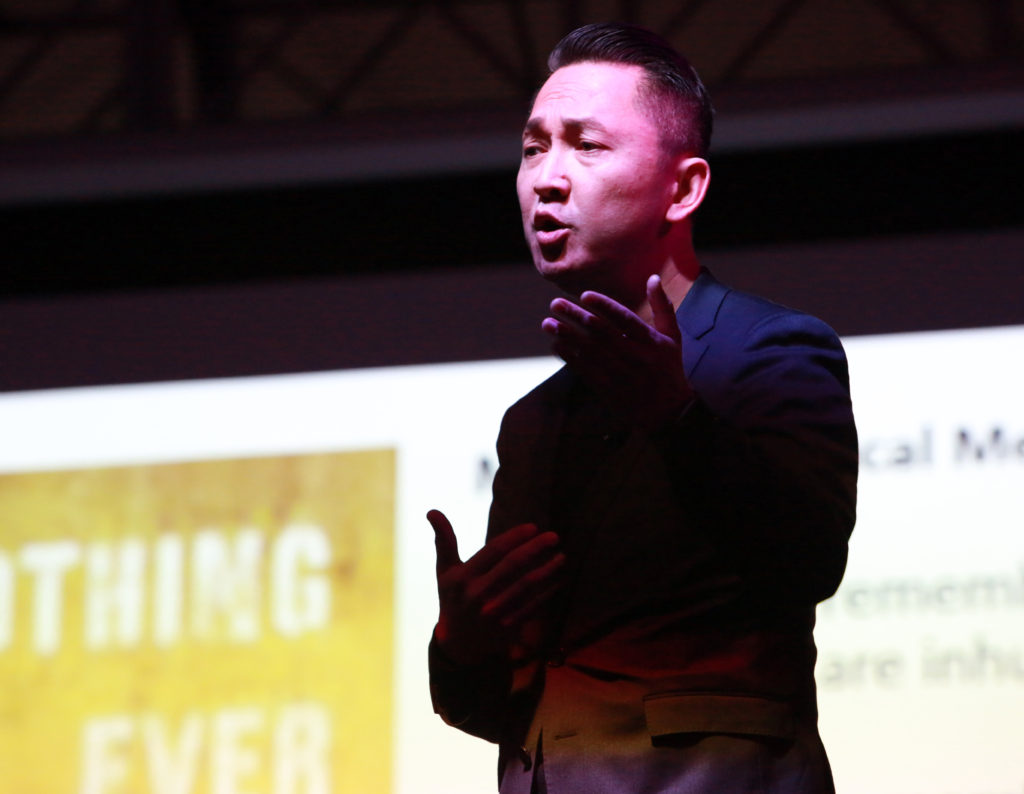
The Asian American Studies department hosted a commemoration of the 50th anniversary of the Third World Liberation Front strike at the Student Life Event Center Tuesday night.
The strike stretched from November 1968 to March 1969 and was led by SF State’s Black Student Union in conjunction with other student groups, including the Latin American Student Organization and the Philippine American Collegiate Endeavor. Collectively, the organizations were known as the Third World Liberation Front.
During the historic strike, demonstrators stopped attending classes and held protests at the center of campus. They demanded the University offer equal access to education for people of all ethnicities in the form of a greater diversity of staff, curriculum and student enrollment. The College of Ethnic Studies, which includes the department of Asian American Studies, was born out of the protests.
“Thinking back to what the students were doing, it was radical back then,” said Viet Nguyen, a Vietnamese-American novelist who spoke at the commemoration. “It’s still radical today.”
An-My Lê, a Vietnamese-American photographer, spoke alongside Nguyen to celebrate the Vietnamese-American arts and culture movements that came from the civil rights movements of the 1960s.
“It’s good to see a different generation being able to talk about the past, the present and the future, [and] acknowledging it,” said Ronald Quidachay, who was the first chairperson of the Third World Liberation Front at SF State during the student strikes. “I was very impressed.”
Daly City Councilmember Rod Daus-Magbual, who studied for his master’s degree in Asian American Studies at SF State in the early 2000s, attended the commemoration on campus. His wife, Arlene Daus-Magbual, is a lecturer in the department.
He said the opportunity to connect the names to the faces of the activists who started the movement, which made space for Asian-Americans and other people of color at SF State, was very special.
“[It’s] important to have the legacy alive, that legacies don’t die in books and that [those] legacies [are still] in-person and you can talk to them,” Rod Daus-Magbual said. “Whenever there is still oppression we still need actions to address those forms of oppression in our society, especially with what’s going on in this political climate.”
In addressing the audience at the event, Asian American Studies department chair Russell Jeung stressed that the work of the students in the Third World Liberation Front in the 60s must be remembered and carried on.
“The contradictions in American democracy are still present today and maybe even more exacerbated,” Jeung said. “Students still face racism, they still face economic inequalities, they still face mass displacement, mass incarceration [and] mass deportation. What the Third World Liberation Front was fighting for continues to be our fight today.”
Jeung also took the opportunity to remind people in attendance that as they celebrated the victory of the strike and the dawn of the College of Ethnic Studies Tuesday, they stood on stolen Ohlone land on the 77th anniversary of United States Presidential Executive Order 9066 that interned more than 100,000 Japanese Americans during World War II.
Quidachay indicated that he has seen progress in the causes he fought for while on campus 50 years ago.
“I get the impression that they don’t have to fight as much as they did a few years ago,” he said. “But you never take it for granted.”







